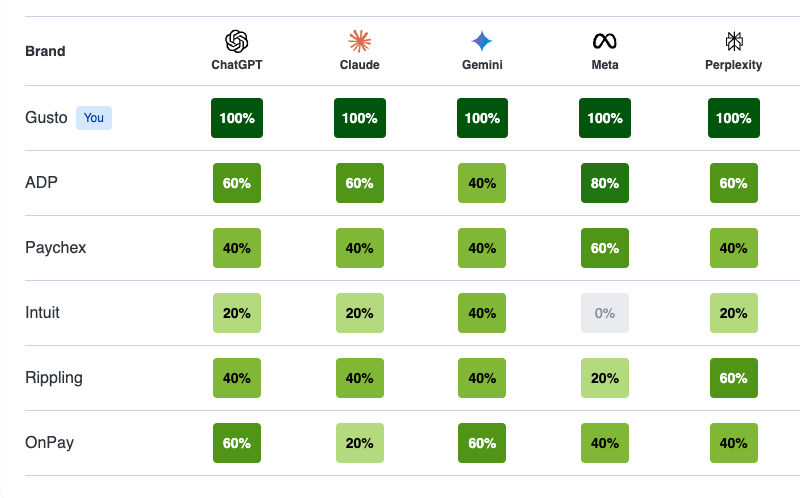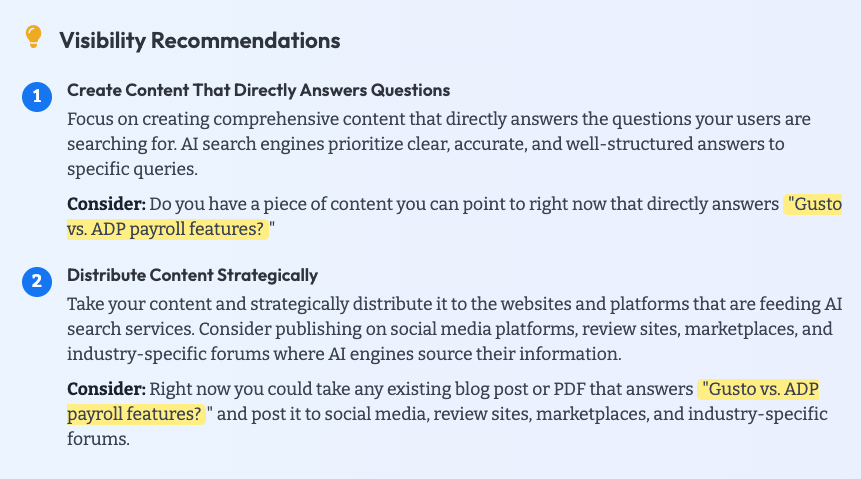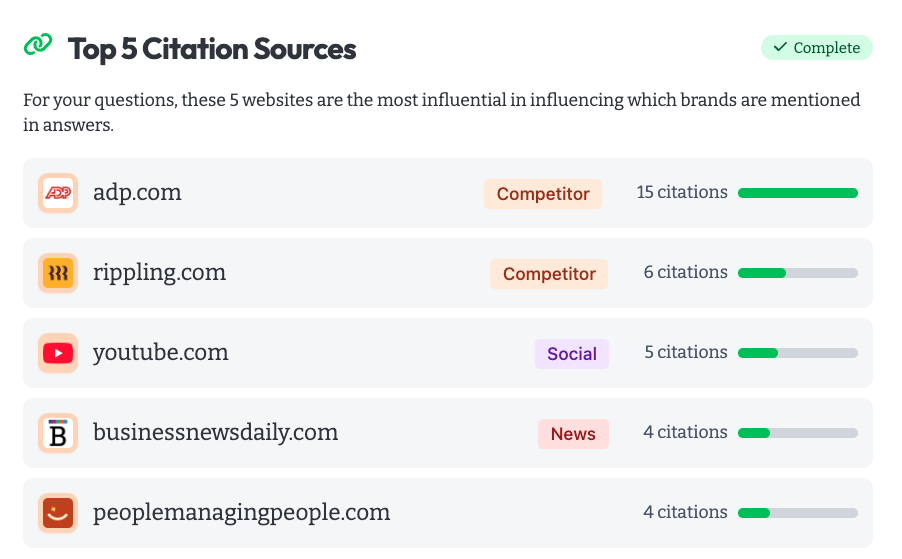"Knowatoa solves a real problem for marketers. AI search is already taking over a big chunk of Google's results, and we're jumping in at exactly the right time."

GrowthHit
We'll show you exactly how to rank higher in services like ChatGPT, Perplexity, and Google AI with personalized recommendations.
4,860 AI search audits have been run by marketers and agencies.
AIs are shaping how buyers discover, compare, and choose. These are unseen gaps keeping your brand out of the conversation.
Prospects research in ChatGPT and Claude before they ever visit your site. You have no idea what they're seeing.
AI models rank competitors higher even when you have better solutions. You're losing deals you don't know about.
AI describes your products incorrectly, confuses your features, or ignores your key differentiators entirely.
You can't track SEO rankings for AI. Traditional tools don't work. You're flying blind.
It's like PageRank for AI, but this time, you can actually influence it. We built The BISCUIT Framework, so marketers can finally reverse-engineer AI recommendations like they used to do with Google rankings.
LLMs don't think like search engines. The BISCUIT Framework breaks down how AI tools describe, prioritize, and recommend your company across commercial queries.
Our proprietary framework helps marketers navigate this new ranking system.

Enter your website URL and let Knowatoa query ChatGPT, Claude, Perplexity, and Gemini to see exactly what they say about your brand.


Based on your specific questions and competitors, we'll give you personalized recommendations to improve your AI visibility that you can act on today.
As we track your AI visibility, we'll identify more and more opportunities for you to outperform your competitors.

Show clients their AI visibility alongside traditional SEO metrics.
Benchmark against competitors to find gaps and opportunities.
Track how AI models describe your brand over time.
Identify which topics and keywords AI models respond to.
Ensure AI models accurately represent new features and products.
Optimize for the questions prospects ask AI before buying.
Every AI response reveals what models think matters most. Use these insights to optimize your positioning.
Track which sources AI models trust and reference most.
Monitor whether AI describes you positively or negatively.
See which features AI highlights and which it ignores.
Know exactly where you appear in AI recommendations.
Track when and why AI recommends competitors instead.
Watch how AI's understanding evolves as you update content.
Compare how different AI models perceive your brand.
Pull data into your own dashboards and reports.
"Knowatoa solves a real problem for marketers. AI search is already taking over a big chunk of Google's results, and we're jumping in at exactly the right time."

GrowthHit
"Knowatoa is something totally new. It raises powerful questions about how tools like Gemini are surfacing your competitors, and it delivers some very cool services to help you respond."

Wunderbrand
"Knowatoa revealed insights that completely changed how I think about brand, website, and content distribution. It's not just a tool, it's a smarter way to approach visibility."

Castos
"Knowatoa helps you stay ahead. AI-driven rankings, and algorithm shifts are why tools like Knowatoa are essential for modern marketers."

Lily.Global Branding
"Knowatoa gives you genuinely valuable insights. There's always something to learn. Any real marketer will see the value."

Avenue9
"Knowatoa is a powerful, well-designed tool in a space that's evolving rapidly. It's valuable for anyone trying to stay visible in AI-driven search."

JM Content Group
"Knowatoa offers a fascinating view into what's happening in the world of AI search, how it's evolving and how you can optimize your content for it."

TechCast
"Knowatoa's approach to branding is really interesting, helping you see who you are now, who you want to be, and what needs to change to bridge that gap."

More than a few Words
"Knowatoa helps you get in early to take advantage of ChatGPT and other AI tools before stricter ranking measures get put in place. You can rack up some great wins."

Conversion Zoo
"Knowatoa has me revisiting my content strategy. There's such a long runway with this, I'm excited to see where it's taking me."

Strategic eMarketing
"Knowatoa helps businesses navigate the evolving landscape of AI, content strategy, and search visibility, and how to stay competitive in this new era of rapid AI-driven changes in marketing."

The Profitable Creative
"Knowatoa is a very cool tool that is getting in front of change in our industry, rank tracking for AI search services like ChatGPT, Perplexity, and Claude."

Founder - Siege Media
Prices in USD
Key features:
Choose Starter if you:
Key features:
Choose Growth if you:
Start tracking your AI visibility today—it takes 60 seconds.
4,860 AI search audits have been run by marketers and agencies.